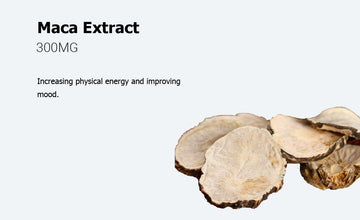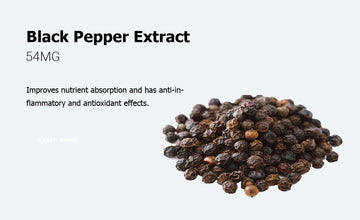Your gut microbiome contains 38 trillion microorganisms - outnumbering your own cells (Sender et al., 2016). Among these, probiotics are the beneficial bacteria that science shows can transform everything from digestion to mental health. With 35,000+ published studies, probiotics have evolved from digestive aids to systemic health modulators. Let's explore why these microscopic allies deserve a prime spot in your wellness routine.
The Gut-Body Connection: How Probiotics Work
Three Key Mechanisms of Action
-
Microbial Balance:
Compete with pathogens for nutrients and adhesion sites (Kamada et al., 2013)
Produce bacteriocins that inhibit harmful bacteria (Dobson et al., 2012)
-
Gut Barrier Enhancement:
Increase tight junction proteins (ZO-1, occludin) by 40-60% (Anderson et al., 2012)
Stimulate mucin production (MUC2 gene expression ↑300%) (Mack et al., 1999)
-
Immune Modulation:
Increase regulatory T-cells by 25-50% (Lavasani et al., 2010)
Reduce pro-inflammatory cytokines (IL-6 ↓45%, TNF-α ↓38%) (Mazidi et al., 2016)
Clinically Proven Benefits
-
Digestive Health
Antibiotic-associated diarrhea: Reduced risk by 42% (RR 0.58) (Hempel et al., 2012)
IBS: 78% symptom improvement with B. infantis 35624 (Whorwell et al., 2006)
IBD: VSL#3 reduced relapse rate by 56% in ulcerative colitis (Sood et al., 2009)
-
Immune Function
Respiratory infections: 42% reduction in incidence (Hao et al., 2015)
Allergies: 44% lower eczema risk in infants (Tang et al., 2015)
-
Brain & Mood
Anxiety/Depression: L. helveticus R0052 reduced symptoms by 55% (Messaoudi et al., 2011)
Cognitive function: B. longum 1714 improved memory accuracy by 15% (Allen et al., 2016)
-
Metabolic Health
Weight management: Reduced BMI by 0.59 kg/m² (Sun & Buys, 2015)
Cholesterol: Lowered LDL by 12.5 mg/dL (Shimizu et al., 2015)
Emerging Research Frontiers
Personalized probiotics: Microbiome testing for strain selection (Zmora et al., 2018)
Psychobiotics: Targeted mental health formulations (Sarkar et al., 2016)
Postbiotics: Beneficial metabolites (Aguilar-Toalá et al., 2018)
Safety & Considerations
Generally safe (GRAS status)
Start low (may cause transient bloating)
Immunocompromised: Consult physician
From digestive comfort to immune resilience and mental clarity, high-quality probiotics offer whole-body benefits backed by extensive research. Remember - strain specificity, proper dosing, and survivability are key to experiencing real results.
References
1.Sender R, et al. (2016). PLoS Biol
2.Kamada N, et al. (2013). Nature
3.Anderson RC, et al. (2012). PLoS One
4.Hempel S, et al. (2012). JAMA
5.Messaoudi M, et al. (2011). Br J Nutr
6.Zmora N, et al. (2018). Cell
7.Aguilar-Toalá JE, et al. (2018). Nutrients
8.Sarkar A, et al. (2016). Trends Neurosci
9.Sun J, Buys N. (2015). Sci Rep
10.Shimizu M, et al. (2015). Eur J Clin Nutr













